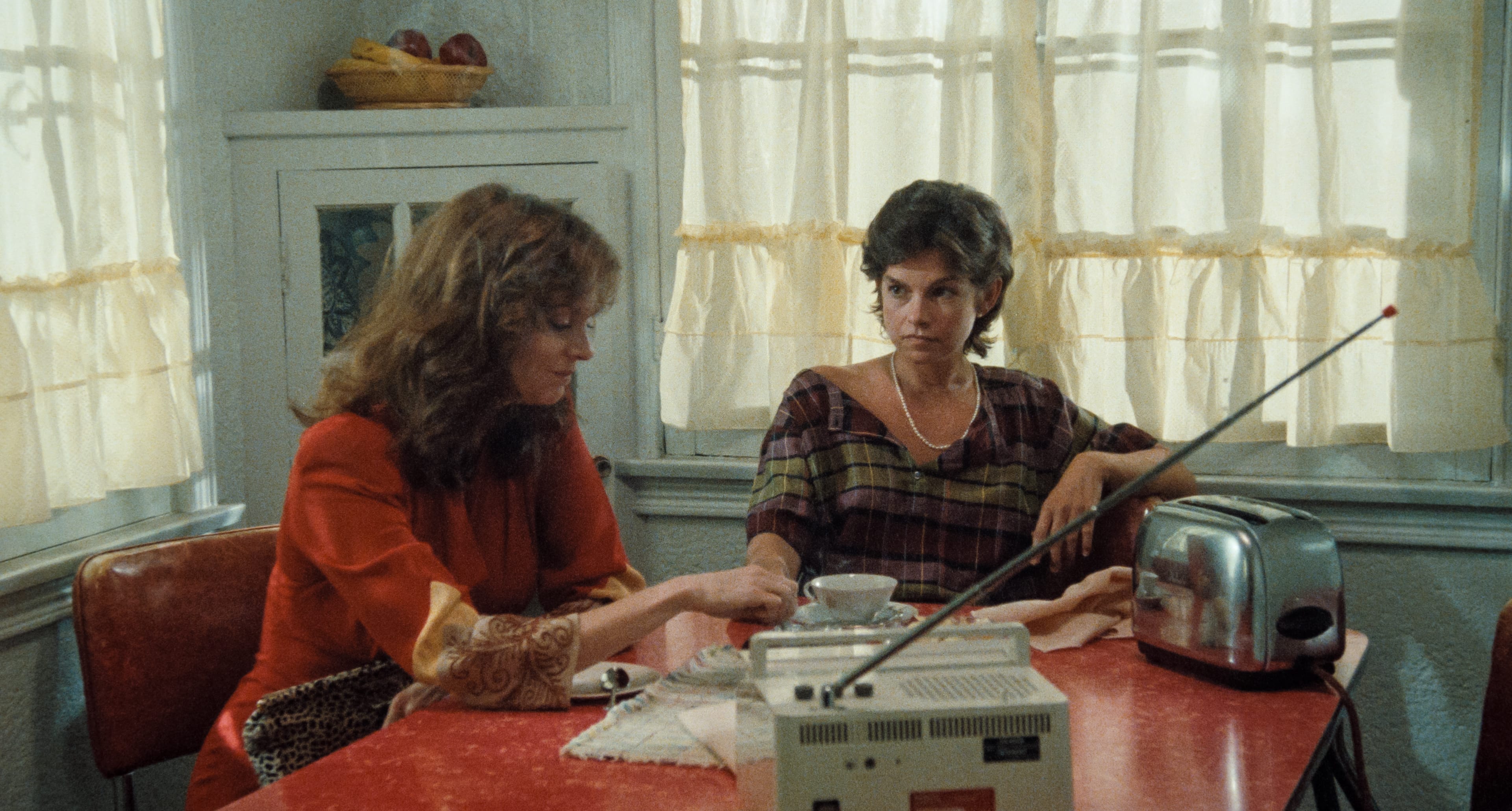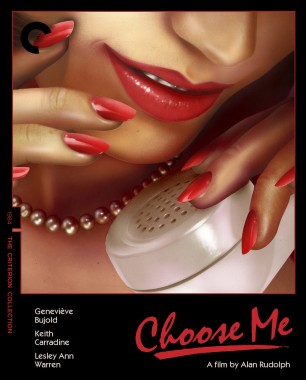Choose Me: What We Talk About When We Talk About Love

Anyone who has struck up a flirtation via app or text knows that it can be easier to bare your heart through some form of mediation. The hundreds of yearning city dwellers who call in to The Love Line, a radio show hosted by the alluringly sagacious Dr. Nancy Love (Geneviève Bujold), are taking advantage of just such a proxy. Delivering her wisdom in a velvety low register, Nancy’s voice, at least, suggests the kind of woman men dream about and women want to be. In reality, her sex life is pretty much nonexistent. That’s the thing about keeping a safe distance, which both Nancy and her callers know all about: our fantasies may remain undisturbed when we’re not required to “deal with the complexities of people’s faces” (as Nancy says on the phone with her shrink), but desire works in mysterious, spontaneous ways, and there’s no stand-in for what our bodies—eyes, lips, loins—can express in the heat of a raw encounter.
Love’s whims and ambiguities are the lifeblood of Alan Rudolph’s Choose Me (1984), a sultry snapshot of the personal lives of six night crawlers, loosely connected by their association with a bar called Eve’s Lounge and the surrounding neighborhood. These characters are unfettered by the precepts of bourgeois morality and the nuclear family but struggle to find happiness in their freedom. From the opening sequence, in which the camera zooms out from Eve’s glowing purple signage and then lowers into a crowd of undulating urbanites—cruising the streets, lighting one another’s cigarettes, shimmying to the sound of R&B legend Teddy Pendergrass’s baritone—the film announces both its choreographed artifice and its fickle vision of romance. In its slick theatricality, Choose Me gestures back to the movie worlds of classic Hollywood’s brooding bachelors and lonely dames. Lovers come and go here, too, but these trysts aren’t meaningless. Real emotions—true love, even—always poke through the glossy surface.
Choose Me is Rudolph’s eighth film, and arguably the most lip-bitingly pleasurable entry in a body of work that boasts high levels of carnal knowledge. The director had introduced the world to his seductively off-kilter brand of humanism in the back half of the seventies, with Welcome to L.A. (1976), a romantic roulette that takes place over the winter holidays, and Remember My Name (1978), starring Geraldine Chaplin as an ex-con intent on settling the score with her philandering former husband. From the beginning, his films have centered lovers and dreamers, the fragility of their bonds and the vagaries of their behavior arranged in tableaux at once ethereal and intuitively familiar. Although Choose Me didn’t break the box office on its release, the critical admiration it received and the cult following it eventually gained have clinched the director’s place within the American independent film movement that was emerging in opposition to the brawny blockbusters that had come to dominate Hollywood’s output. The ultra-low-budget idiosyncrasies made by Rudolph and newcomers such as Jim Jarmusch and John Sayles were at liberty to challenge commercial tastes as they bypassed traditional structures of production and distribution.






